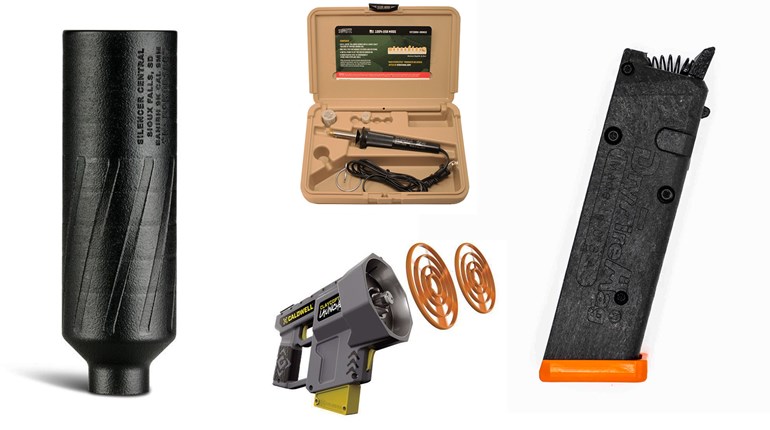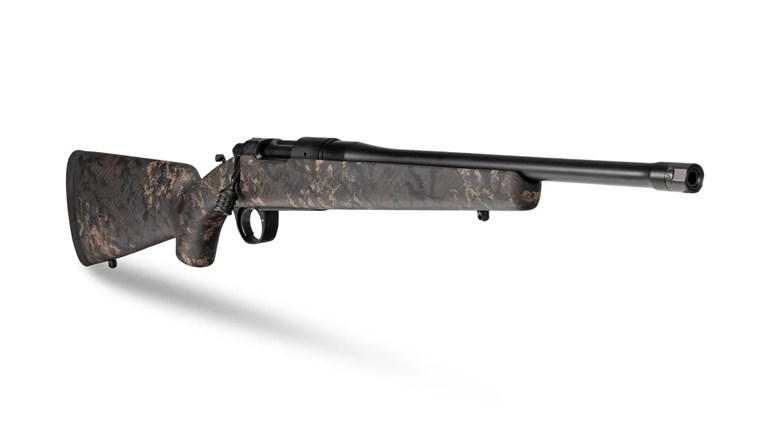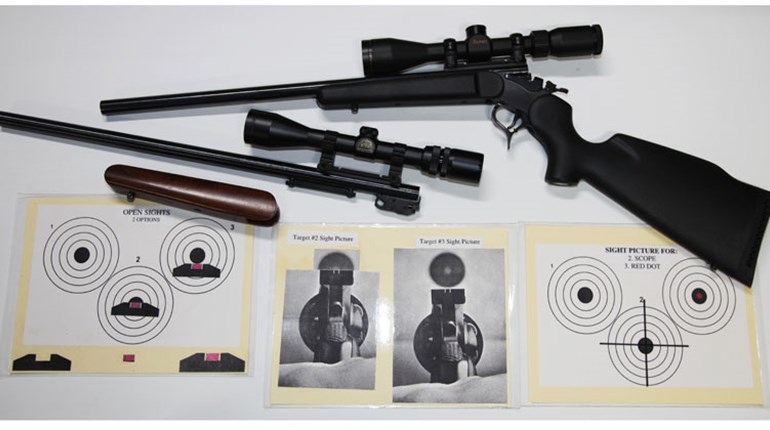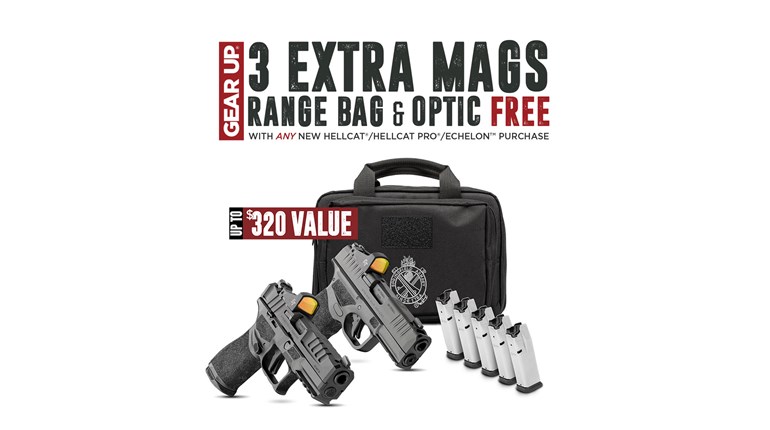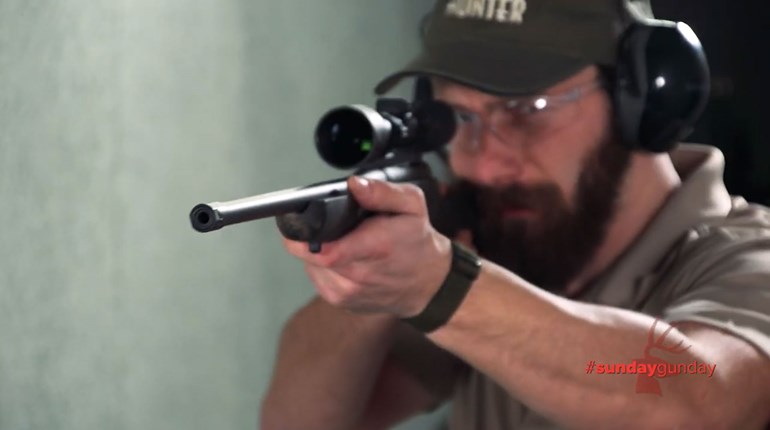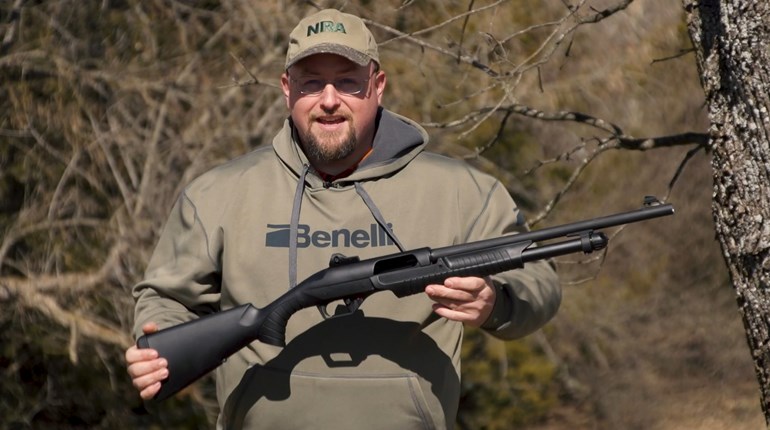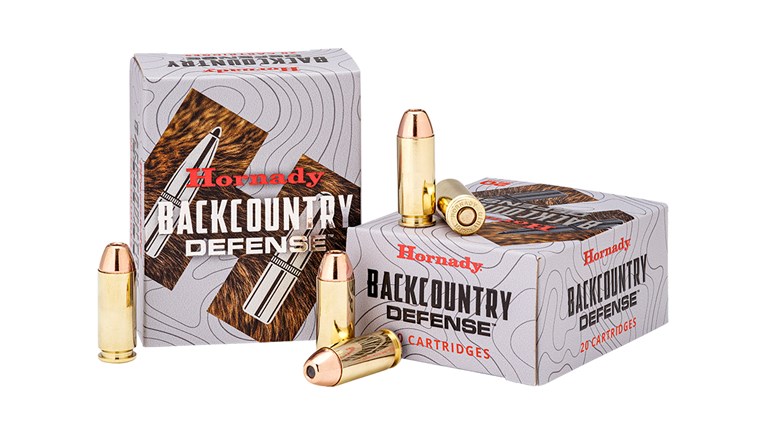
It’s funny how quickly we can be labeled. I wrote a novel called The 14th Reinstated that was set after the end of civilization as we know it, and the narrative contained a lot of survival information. More recently I wrote a book called Prepper Guns, which describes the firearms needed to survive a catastrophic event. So I suppose I should not have been surprised when a reporter from a mainstream news magazine called me for an interview.
“I understand you are a prepper?” he said with a barely concealed smirk in his voice. “Getting ready for the end of the world, I suppose?”
I was a bit taken aback as I have never really thought of myself as a “prepper.” But, I did have an answer for the guy.
“I suppose I am a prepper,” I said, “because what most people call prepping I just call life. I grew up in a small, isolated town in a poor family. We learned to do things ourselves in order to survive. But more importantly, I am a hunter. So, yeah, I guess I am a prepper. At least, I have a lot of the skills and tools needed to get through a troubled time.”
Clearly it was not the answer he wanted because my quotes didn’t make print. I suppose I made too much sense and seemed too normal for what he was trying to portray.
Hunters do have a big jump on most preppers. We already have many of the tools and skills that are needed for survival, and we tend to be clear-thinking, problem-solving people. The No. 1 tool for survival is a brain that can deal with problems and find solutions, something every successful hunter uses in the field. Hunters also have many of the other items needed for survival: warm clothing and boots, sleeping bags, knives, guns, camping gear and more.
No question the world is becoming a dangerous place. Forget doomsday. Instead worry about natural or man-made disasters that cause the system to shut down for a while, maybe even a long while. Can you cope? As a hunter you are better situated than most, but you may need to tweak a few things.
For the purpose of this discussion let’s assume you are staying home or have a place where you can retreat. So the shelter part is covered. (Bugging out is another topic entirely.)
Store extra gasoline for your vehicles. Even if you elect to stay home you will need the vehicles more often than you might think.
Another big concern will be heat if it’s cold. Many of us who live in cold climates have that covered with a supplementary wood stove. If you can install a wood stove in your house it’s a good idea to do so even if you never use it. It doesn’t need to be expensive. It’s easy to make a stove out of a steel 55-gallon drum. There are kits for this, but a clever craftsman can construct one easily.
Small propane heaters hunters use in blinds or tents can heat a room, if you follow the directions for safety. The biggest issue will be re-supplying the canisters of fuel. It’s a good idea to keep a few cases of propane canisters in storage.
Other than shelter, the tenets of survival are the three “B’s”: beans, bullets and bandages. You need food and water (beans); a way to protect what you have and perhaps supplement the food supply (bullets); and medical supplies and knowledge (bandages).
There are different levels of disaster. I like to think in terms of threes: three days, three weeks, three months, three years. You should have a plan for each of them. There will be overlap, of course.
Most disasters are over quickly. The lights come back on, the roads are cleared and the stores are stocked again. But you need to be ready in the event that doesn’t happen.
Beans
Mel Tappan wrote about survival in the 1970s and ’80s. He warned that the average U.S. household has less than two weeks’ worth of food on hand. The average U.S. city, he said, has only eight days’ worth of food and the worldwide supply was just 84 days’ worth of food. I know the average American household number has dropped to something like three days, but I can’t find any data on the rest. However, I suspect it’s lower than it was in 1980.
It’s simply smart to have enough food on hand to get through at least three weeks. Three months is even better. If it goes three years you need a plan to grow, gather, and buy or barter for more food.
As a hunter you probably have a freezer full of meat. But do you have a way to run the freezer during a power outage? Sure, you can cover your freezer with multiple sleeping bags and blankets to reduce heat infiltration, but you should also have a generator with enough wattage to run the freezer. You must also have enough fuel to run the generator for several hours every day. If the fuel is gasoline, it should be rotated every three months, as it doesn’t store well.
An alternative method of preserving your food is to can it. If you have a heat source, say a camping stove with plenty of fuel, you’ll be able to thaw what is in the freezer and can it. Canned meat will keep for a year or more. You can also dry the meat, and it will keep if you store it in a cool, dry place. The trouble is most of us don’t have a cool, dry place now that root cellars are a thing of the past. Dried meat stored improperly can spoil.
It is smart to also have a supply of food that keeps without attention: canned food, dried beans, rice or wheat, and other foods with long-term storage capabilities. The Mormons have a tremendous amount of information on this topic here.
Consider also laying in a supply of freeze-dried food or MREs to get through the tough days. If you are a sheep hunter then you know about Mountain House freeze-dried food because you have probably eaten a lot of it. During hunting season I keep several packages in my truck along with a small backpacker’s stove. Just add boiling water and it’s a hot lunch on a cold day. I also buy the bulk packs sold online and have several of them stacked up for emergency use. They have a very long shelf life and require nothing more than water to prepare.
You need a way to cook your food. If the power is out you can cook on your propane grill until you run out of fuel. If you are a hunter, odds are you have camping gear including a stove. Many camping stoves run on propane, which is convenient, but it will be hard to resupply in an extended crisis. A much better choice is a stove that will run on unleaded gasoline such as the duel-fuel stoves from Coleman. The larger 17,000 BTU model can be used for canning as well as cooking. While a bit small for everyday family use, consider as a backup a Primus Omni-Fuel Stove that can burn most anything from butane to jet fuel, including kerosene, gasoline or diesel fuel.
Of course if you live where there is a supply of firewood, an outdoor fire pit with a grill to cook on is an alternative with a long-lasting supply of fuel. It’s a lot of work, but venison backstrap grilled over hardwood coals has no equal.
Water Odds are the water will stop flowing from your taps.
Odds are the water will stop flowing from your taps.
If you live in an area where water is hard to find, you should store plenty of it. If, like me, you live where water is abundant you will need several large containers to store and transport it. We lose power all the time where I live, so I have collected a bunch of 5-gallon water jugs I can fill from multiple sources and haul home in my truck.
No unknown water supply is safe: Any water you gather must be purified before drinking. Water filters are a good short-term solution. As a hunter, I never enter the backcountry without a water filter. Lately I also carry a SteriPen as it gets things like viruses that the filter can miss. But these are best for small quantities. Larger volumes require a different approach.
You can boil water, but that eats into your fuel supply and is a lot of work. It’s much easier to simply add a small amount of bleach to the water to purify it. Clorox recommends eight drops per gallon for clear water. Double that if it’s turbid. There’s more information here.
Bandages
As a hunter, you probably already know basic first-aid and have a first-aid kit handy. That’s not enough. In a disaster, the hospitals and emergency rooms will likely be swamped. For anything less than life-threatening, you may well be on your own. It’s not inconceivable that in a long-term disaster health care will be totally unavailable. That leaves it up to you.
In addition to a well-stocked first-aid kit you should have a few other basics. I keep sutures and a surgical stapler to close wounds. I also have some basic surgery tools. None of us has the skill of a plastic surgeon, but if there is no alternative it makes sense to have these tools and the knowledge to use them.
Learn all you can about medical care. Advanced first-aid courses are pretty common. There are some backcountry first-aid courses like the one from SOLO I wrote about in the April 2015 issue of AH.
Because of liability issues, it’s difficult to get anybody to teach you things like simple surgery or how to suture a wound, but there are a lot of books and videos on the topics. Make it a point to teach yourself all you can.
It’s a good idea to have a well-stocked medical library. They should be dead-tree, hard-copy books because odds are the Internet will not be working during a disaster. If you find something on the Web that’s helpful, print it and store the paper copy in your medical library.
I never go on a hunting trip in the backcountry or in a developing nation without a well-stocked drug bag. Broad-spectrum antibiotics are a must, as is something to deal with digestive issues and perhaps some painkillers. These are important for survival, too. You need a doctor who is willing to write the prescriptions and most of these medicines have a shelf life, so you will need to replace them on a rotating schedule.
The important thing about the “bandages” aspect of prepping is to always strive to learn more about medicine. Read, watch videos, take courses and ask questions. Take a doctor hunting so you can pick a professional’s brain. Whatever it takes. It’s too late to learn medicine after the emergency has occurred.
Bullets
My new book, Prepper Guns, is about the kind of firearms needed to survive a disaster. It’s 132,840 words because this is a big, complicated topic. But let me make two important points here.
First, if the system fails, odds are you will be on your own. If you do not have the means and the will to protect yourself, your family and your supplies, you may not survive. Point two: Your hunting guns are not the answer (unless you hunt with an AR). I know that’s not what you want to hear, but it’s true. They are better than no guns, of course, but if things turn nasty most hunting guns are not the best option for defense. At the risk of sounding too much like a self-promoter, I urge you to buy my book for details.
To survive, every member of your party should have a magazine-fed, semi-auto rifle. The best is probably an AR-15. It’s also a good idea to have a magazine-fed, high-capacity, semi-auto handgun. You will also need a lot of ammo and you should have training in the guns’ use.
Most important is to have it clear in your mind that you are willing to fight to survive. Predators are predators. If a grizzly bear is coming at you with the intent to kill, would you not shoot it?
Surviving a disaster is not going to be romantic or pretty. But if you prepare by building on the knowledge, skills and gear you have as a hunter, your odds of survival are going to be a lot higher than a city-dwelling hipster with the life skills of a hamster.













